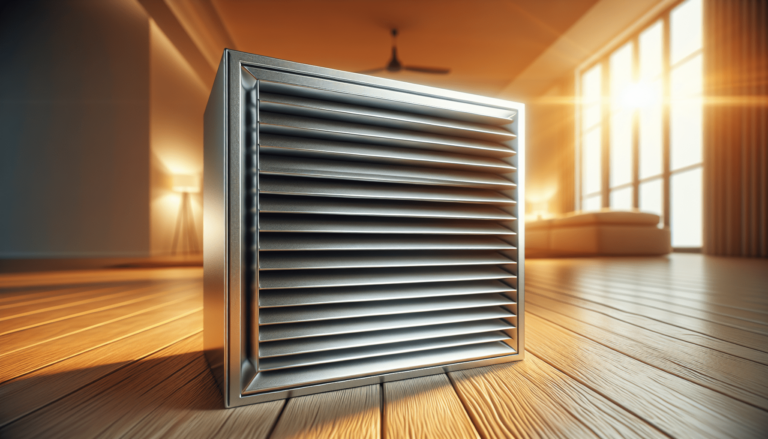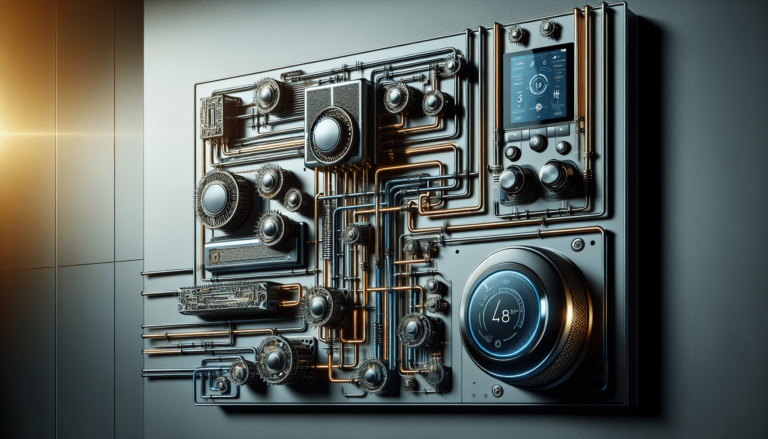

HVAC Services
Get Professional Repairs From The Area's Trusted HVAC Technicians. Ask About Our Services! We Offer Professional Heating & Cooling System Repairs And Guarantee Long-Lasting Results.
Got Question? Call us: (850) 678-2665Financing
Understanding the Different Types of HVAC Systems
Learn about the different types of HVAC systems including central air conditioning, ductless split systems, heat pumps, packaged systems, window ACs, portable ACs, geothermal systems, radiant heating, hybrid systems, and ventilation. Find the right system for your needs!
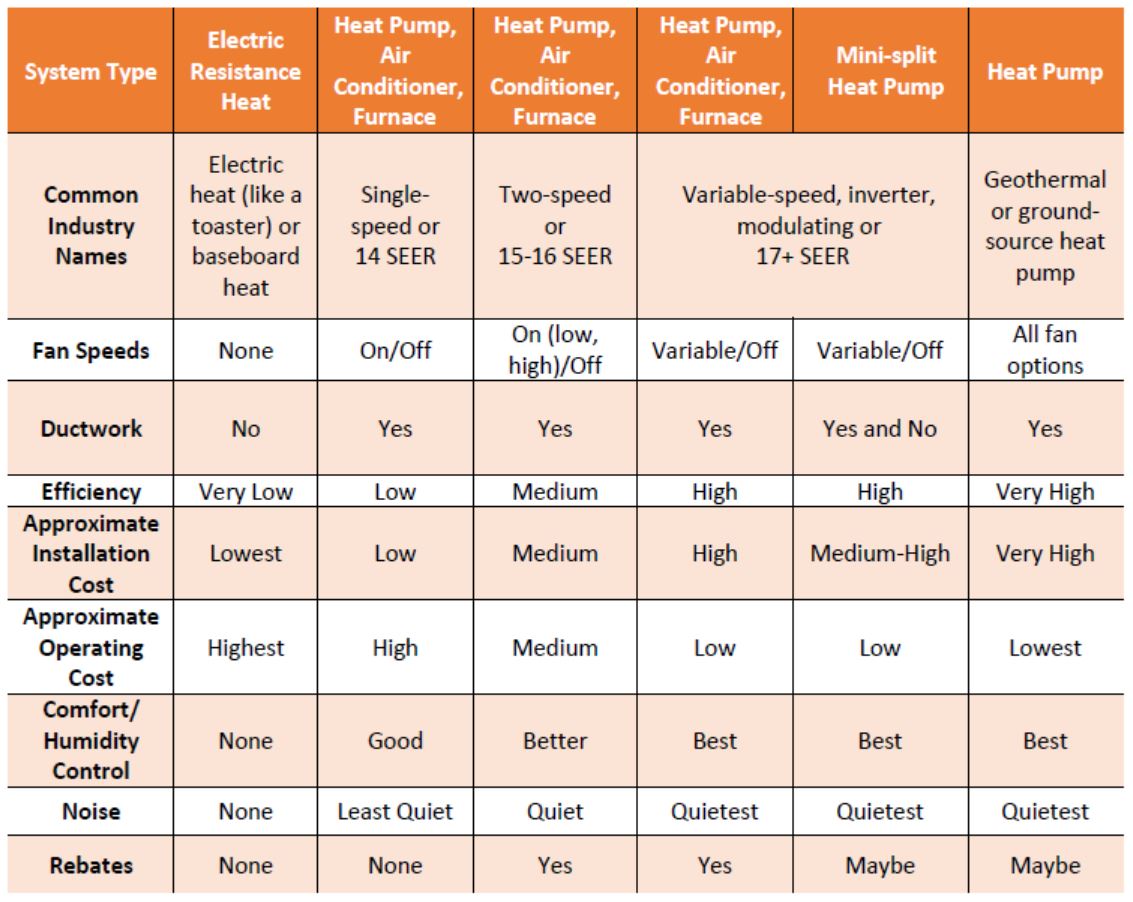
Are you feeling a little lost when it comes to understanding the different types of HVAC systems? Well, look no further! In this article, we will break down the various types of HVAC systems to help you gain a better understanding of how they work and which one might be the best fit for your needs. Whether you’re a homeowner looking to upgrade your current system or a business owner in need of a commercial HVAC solution, we’ve got you covered. So, sit back, relax, and get ready to become an HVAC expert!
Types of HVAC Systems
When it comes to heating, ventilation, and air conditioning (HVAC) systems, there are various options available to suit different needs and requirements. Understanding the different types of HVAC systems can help you make an informed decision when it comes to choosing the right system for your home or commercial space. Let’s explore the different types of HVAC systems in detail:
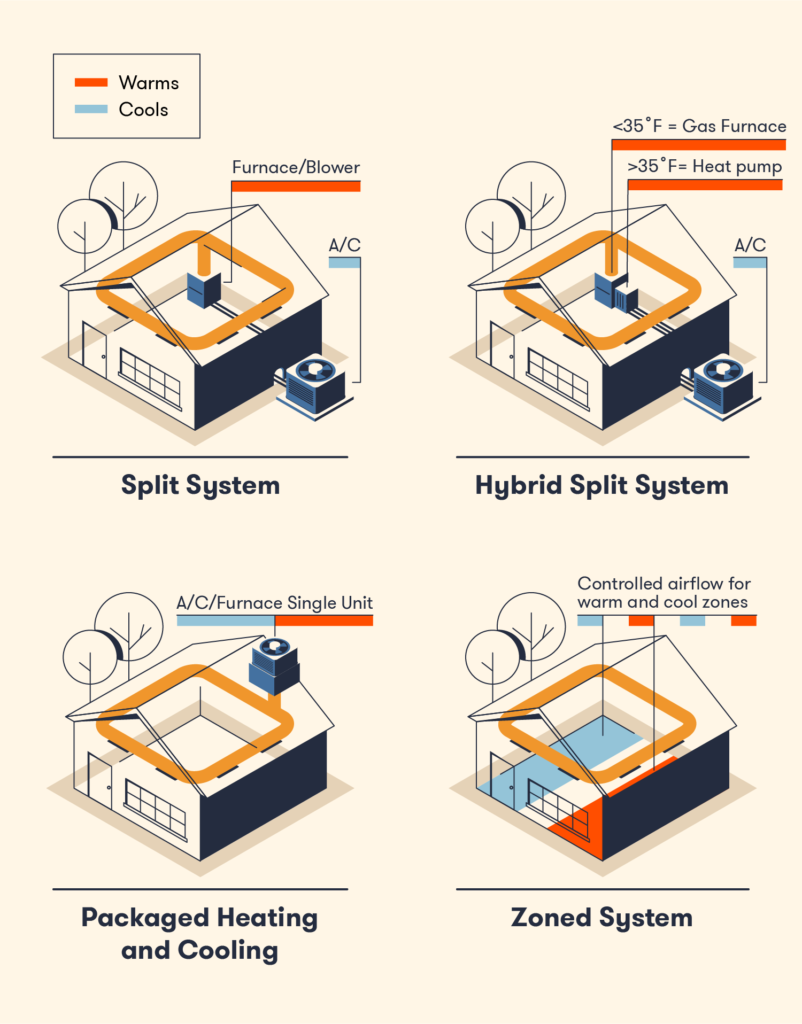
This image is property of acropolis-wp-content-uploads.s3.us-west-1.amazonaws.com.
Central Air Conditioning Systems
Central air conditioning systems consist of a central unit that cools the air and distributes it through a network of ducts. This type of system is commonly found in larger homes or commercial buildings. Central air conditioning systems are known for their ability to provide consistent cooling throughout the entire space. They are also energy-efficient and can help maintain a comfortable indoor temperature during hot summer months.
Ductless Split Systems
Ductless split systems, also known as mini-split systems, are an excellent option for spaces where installing ductwork is not feasible or preferred. These systems consist of an outdoor unit and one or more indoor units that are mounted on the wall or ceiling. Ductless split systems allow for individual control of the temperature in each room or zone, offering personalized comfort. They are energy-efficient and provide both heating and cooling capabilities.
Heat Pump Systems
Heat pump systems offer both heating and cooling functions by transferring heat between the indoors and outdoors. They work by extracting heat from the air or ground and transferring it indoors during the winter months for heating, and vice versa during the summer months for cooling. Heat pump systems are energy-efficient and can significantly reduce overall energy consumption compared to traditional heating and cooling systems.
Packaged Heating and Cooling Systems
Packaged heating and cooling systems are suitable for spaces with limited indoor space, such as apartments or small commercial buildings. These systems combine both the heating and cooling components in a single unit, typically installed outside the building. The conditioned air is then distributed through ductwork or vents inside the space. Packaged systems are energy-efficient and can save valuable indoor space.
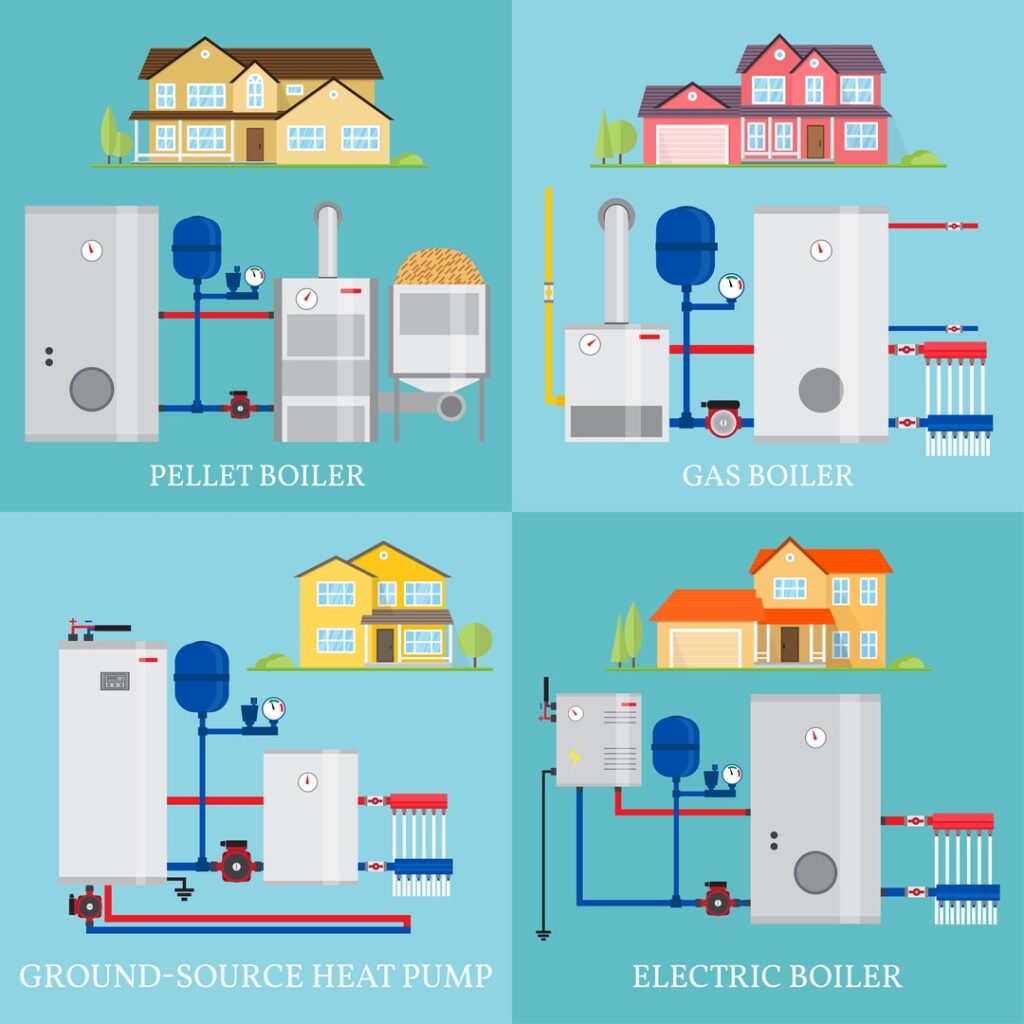
This image is property of www.ocplumber.com.
Window Air Conditioners
Window air conditioners are a popular choice for cooling individual rooms or small spaces. As their name suggests, these units are installed in windows and provide localized cooling. Window air conditioners are relatively affordable and easy to install. However, they may not be suitable for larger areas or for cooling multiple rooms.
Portable Air Conditioners
Similar to window air conditioners, portable air conditioners offer localized cooling. However, instead of being installed in windows, these units are freestanding and can be moved from room to room. Portable air conditioners are a versatile option, especially for spaces where window installation is not possible or desired. They are easy to set up and offer flexibility in cooling individual areas.
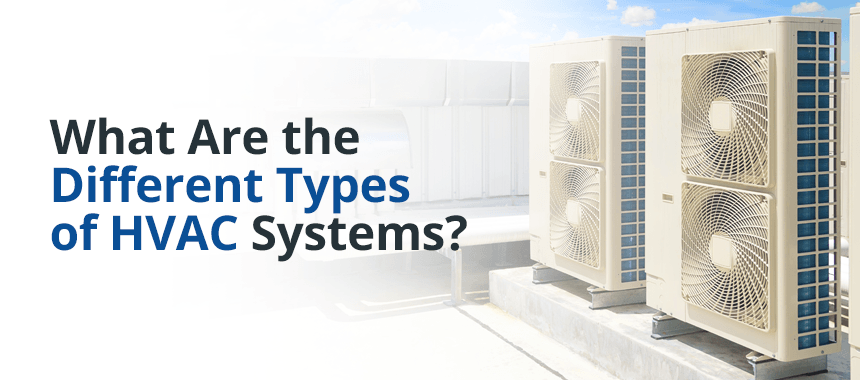
This image is property of leggettinc.com.
Geothermal Heating and Cooling Systems
Geothermal heating and cooling systems utilize the earth’s natural heat to provide both heating and cooling for a space. These systems work by extracting heat from the ground during winter for heating and transferring heat back into the ground during summer for cooling. Geothermal systems are highly energy-efficient and can significantly reduce energy consumption and carbon footprint.
Radiant Heating Systems
Radiant heating systems involve heating the floor, walls, or ceilings to radiate heat into the living space. This type of system provides comfortable and even heat distribution. Radiant heating can be achieved through various methods, including electric resistance, hot water tubing, or air-based systems. It is a popular choice for cold climates or areas where traditional heating systems may not be efficient.
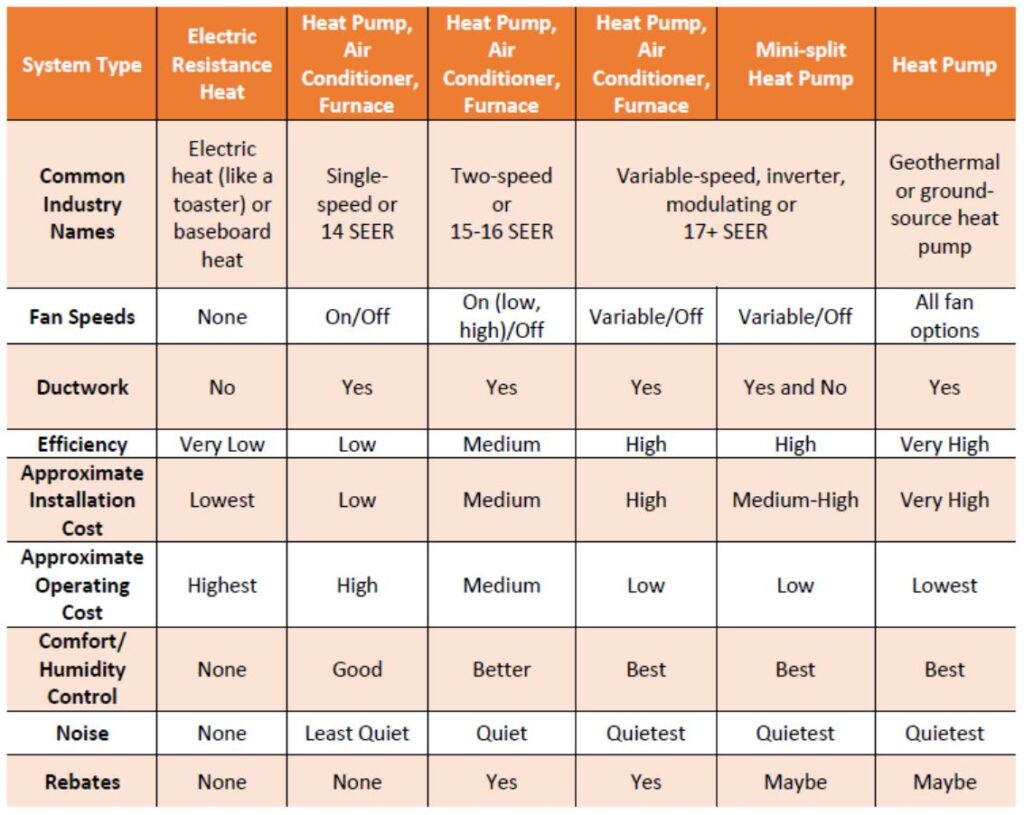
This image is property of www.advancedenergy.org.
Hybrid Heating and Cooling Systems
Hybrid heating and cooling systems combine the benefits of both a heat pump and a traditional furnace or air conditioner. These systems intelligently switch between the two technologies based on outdoor temperature and indoor comfort requirements. During milder weather, the heat pump operates to provide energy-efficient heating or cooling. However, when extreme temperatures are experienced, the traditional heating or cooling system kicks in for optimal comfort.
Ventilation Systems
Ventilation systems ensure the circulation of fresh air and the removal of stale air from a space. They help maintain proper indoor air quality and prevent the buildup of contaminants, odors, and excess humidity. Ventilation systems can be as simple as exhaust fans installed in bathrooms and kitchens, or they can be more complex systems that distribute fresh air throughout the entire building.
In conclusion, understanding the different types of HVAC systems is essential when it comes to selecting the right system for your needs. Whether you are looking for central air conditioning, ductless split systems, heat pumps, packaged systems, window or portable air conditioners, geothermal systems, radiant heating, hybrid systems, or ventilation, there is a solution available to provide comfort and efficiency for your space. Remember to consult with a professional HVAC technician to determine the most suitable option for your specific requirements.
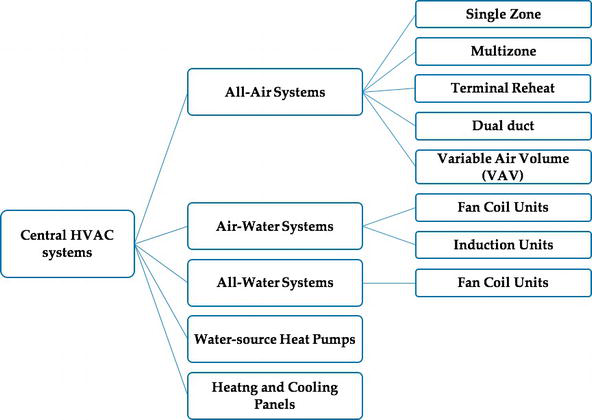
This image is property of cdnintech.com.


